Book of the Day Roundup August 26-30, 2019
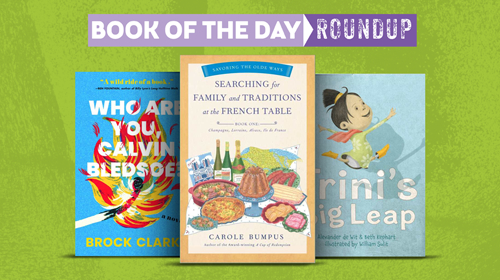
Who Are You, Calvin Bledsoe?
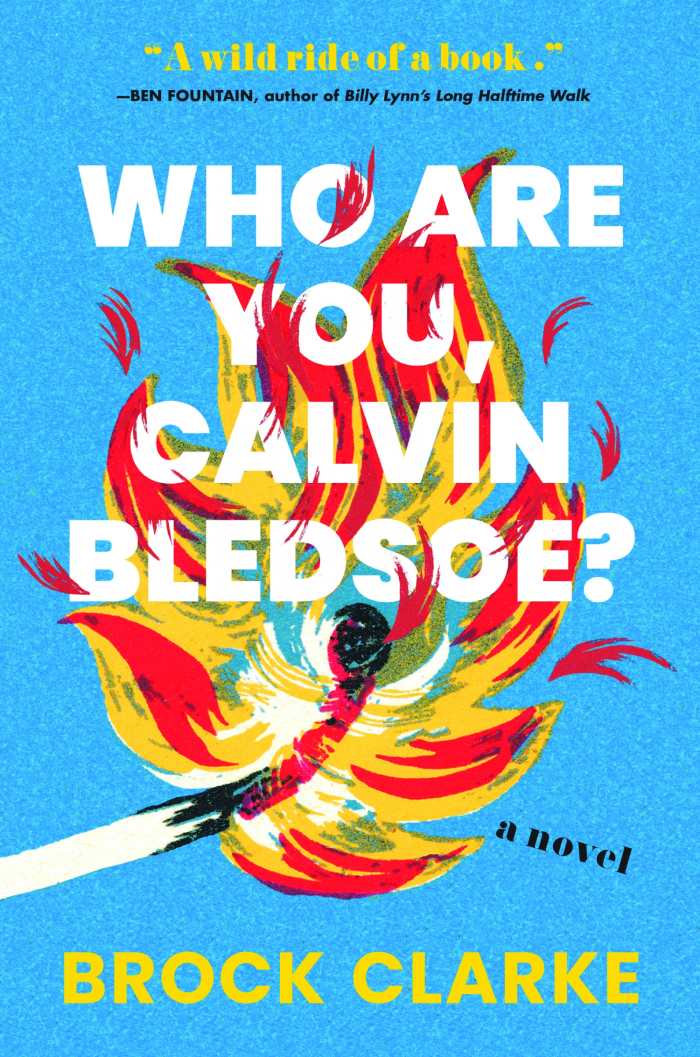
Brock Clarke
Algonquin Books
Hardcover $26.95 (304pp)
978-1-61620-821-9
Buy: Amazon
Calvin Bledsoe is middle-aged, glum, and in dire need of a shakeup. Saddled with a strict Calvinist upbringing thanks to his celebrity mother, he’s freshly divorced and stuck writing a blog for a pellet stove company in small-town Maine. But his dreary world gets upended when his colorful, unpredictable Aunt Beatrice shows up at his mother’s funeral and all but kidnaps him for an impromptu jaunt through Europe. Their subsequent escapades are the subject of Brock Clarke’s comic road trip tale, Who Are You, Calvin Bledsoe?
As Calvin and Beatrice hopscotch from Stockholm to Paris to Geneva to Lisbon, getting into one scrape after another, he comes to learn about his aunt’s zany background, which is as far from Calvinist as one can get. Beatrice is a top-notch thief with an ex-husband who happens to be an arms dealer and a son who’s into animal pornography. Before long, Calvin learns that his own family isn’t as squeaky clean as he’s always thought.
His parentage comes into question, too, but there’s little time to ruminate. In hot pursuit are Calvin’s vengeful ex-wife, a comely fellow traveler who claims to be from Sheboygan but whom Beatrice insists is an Interpol agent, and an obsessive minister who is convinced that Calvin’s mother is still alive.
Seesawing between surreal plot twists and verbal jousts, Who Are You, Calvin Bledsoe? is a coming-of-age story wrapped around wry religious critique. Calvin’s Calvinist doctrine clashes against Beatrice’s freewheeling lifestyle at every turn.
Seasoning his comic stew with sly turns of phrase and deadpan humor, Clarke guides the audience toward a touching answer to the question posed by the book’s title. Although some may scratch their heads at the concluding flurry of events, Clarke is just as interested in the journey as he is in the destination, and in his deft hands, Who Are You, Calvin Bledsoe? is cheeky, absurd, and surprisingly poignant.
HO LIN (August 20, 2019)
Write On, Sisters!
Voice, Courage, and Claiming Your Place at the Table
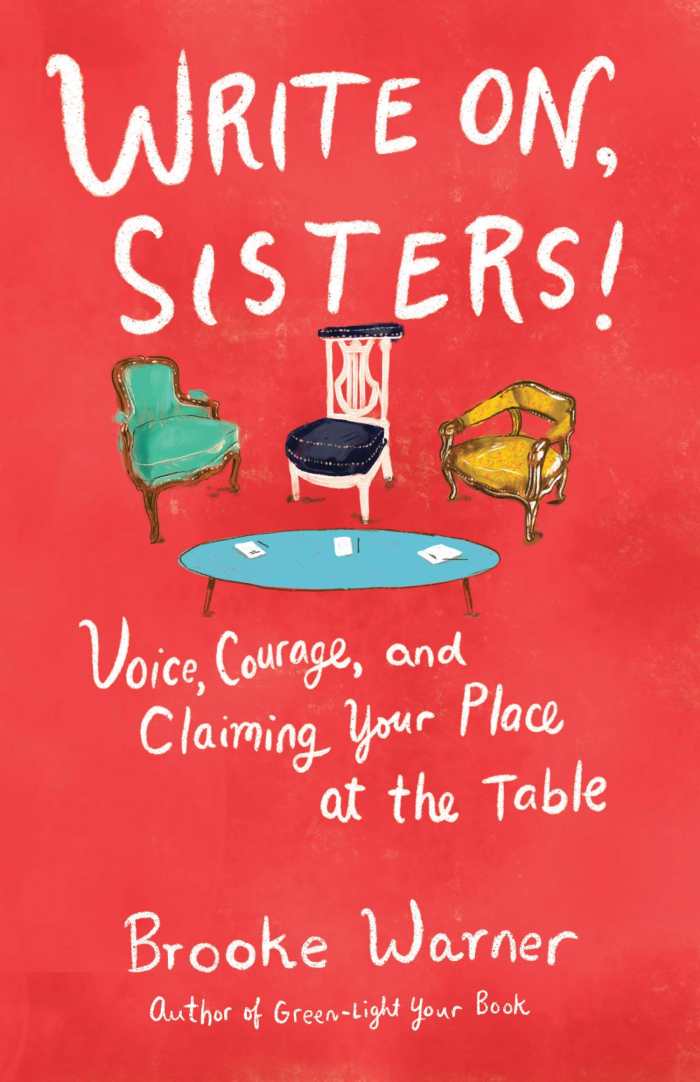
Brooke Warner
She Writes Press
Softcover $16.95 (256pp)
978-1-63152-670-1
Buy: Local Bookstore (Bookshop), Amazon
Brooke Warner’s Write On, Sisters! is a detailed study of gender in writing and publishing and an inviting call to action for women who write.
The book begins with the bad news: women face a wide array of challenges when it comes to getting their work in print, as they have for centuries. Gatekeepers, reviewers, award committees, and even seemingly impersonal elements like categories and genre designations are barriers that must be overcome.
What makes this catalog of mindboggling double standards enjoyable and motivating is the nuance and wisdom with which Warner untangles this knot and the frankness with which she addresses stark realities like racism and financial privilege. The book shines when confronting complex issues, such as the tricky balance of opportunity and segregation and the paradigm of women writing for women.
Warner champions the vital nature of women’s voices and forwards the wisdom and encouragement that is necessary to overcoming the obstacles. Boldness, grit, and resilience are on the top of the list of traits to embody. Inviting women to fail with gusto and to resubmit their work aggressively, the text’s lessons draw upon Warner’s experience as the founder of She Writes Press, including the pros and cons of author-subsidized publishing models.
Sharing the inspiring stories of women who’ve found their voices and chipped away at extant barriers to be heard in spaces where they can change people’s lives, the book acknowledges that all of this work requires community. A long list of women-only writing spaces and bookstores will bring that community into view for isolated writers. The book’s visual elements—like inviting sketches and graphs showing authors’ genders by genre—are interesting and insightful.
Plainspoken, supportive, and positive, Write On, Sisters! is a professional guide for women who write and for those who want to champion their voices.
MELISSA WUSKE (June 27, 2019)
Trini’s Big Leap
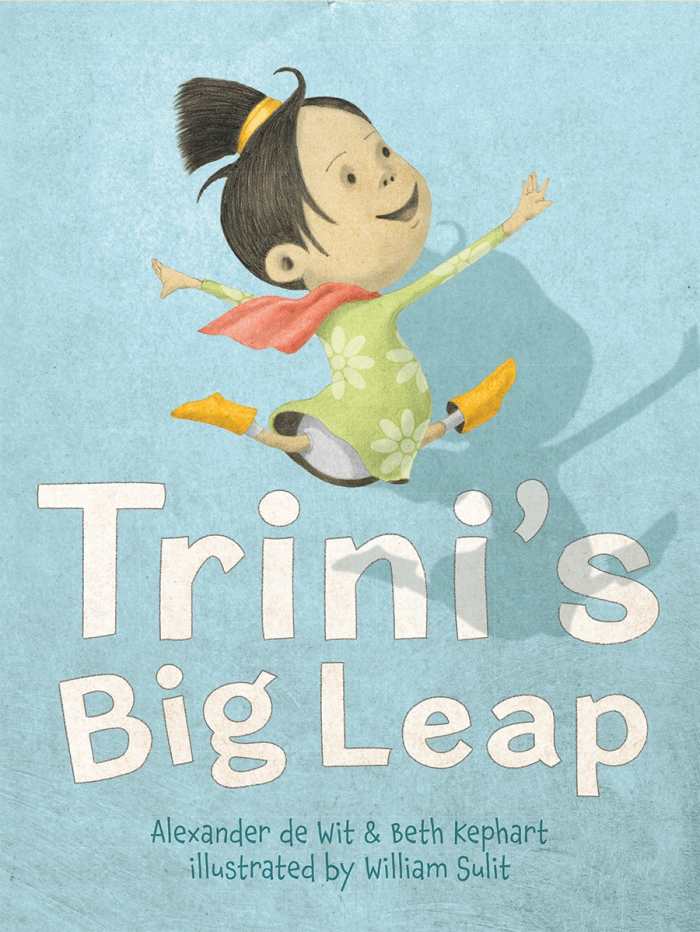
Beth Kephart
Alexander de Wit
William Sulit, illustrator
Penny Candy Books
Hardcover $17.95 (32pp)
978-0-9996584-5-1
Buy: Amazon
Trini is bold, jumping and twirling in bright yellow boots, a floral sundress, and crimson cape. But her confidence is shaken when her attempts to build a block castle all fall flat. With a little help from friends, Trini discovers the importance of perseverance, teamwork, and trying new things. The book’s informative afterword encourages children to challenge themselves and others by exploring a variety of activities and experiences, having fun while forming healthy foundations for future success.
PALLAS GATES MCCORQUODALE (August 20, 2019)
Unfaithful
Love, Adultery, and Marriage Reform in Nineteenth-Century America
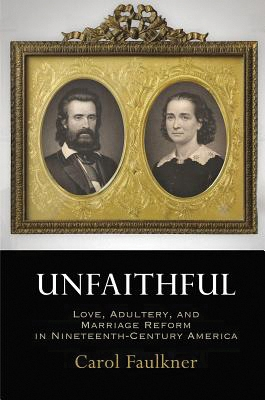
Carol Faulkner
University of Pennsylvania Press
Hardcover $49.95 (240pp)
978-0-8122-5155-5
Buy: Local Bookstore (Bookshop), Amazon
Defining marriage and adultery is tricky, and it was even trickier in the 1800s. In the heady but colorful Unfaithful, Carol Faulkner gives the history of American marriage reformers. These rebels and thinkers, along with some straight-up abusers and oddballs, challenged marital standards. This history shows that their own experimental relationships were often less idyllic than their philosophies.
Reformers said marriage should be based on love, desired by both parties, and that women should be equal and willing partners in physical relationships. It was a hot topic at the same time as feminism and the abolition movement, and Faulkner discusses fascinating intersections between marriage reform, women’s rights, and the push to end slavery. A nineteenth-century trend of comparing wifehood to slavery runs throughout the book, highlighting how women’s roles in unequal, unloving marriages were seen as a form of servitude, both during and after times of actual slavery in the US.
The book also reveals that marriage reformers were mostly heterosexual and white, but Faulkner takes care to introduce historical figures who broke that mold. Paschal Beverly Randolph, a spiritualist of mixed race, is a dynamic personality who cowrote the 1860 book Human Love, but then came to an about-face in his thinking. Mary Louise Booth is another fascinating figure; she escaped her marriage to a cheating husband to begin a new life with feminist Mathilde Anneke in Switzerland.
Academic in tone but still exciting, Unfaithful introduces the stories of marriage reformers in the 1800s and their rich overlap with feminism, abolitionism, and many other movements. They challenged gender roles and questioned how, why, and whether people should marry or divorce to begin with. The changes to popular definitions of marriage over the last two centuries, described so well in this book, shine a light on definitions of marriage and respectability today as well.
MEREDITH GRAHL COUNTS (August 20, 2019)
Searching For Family and Traditions at the French Table, Book One
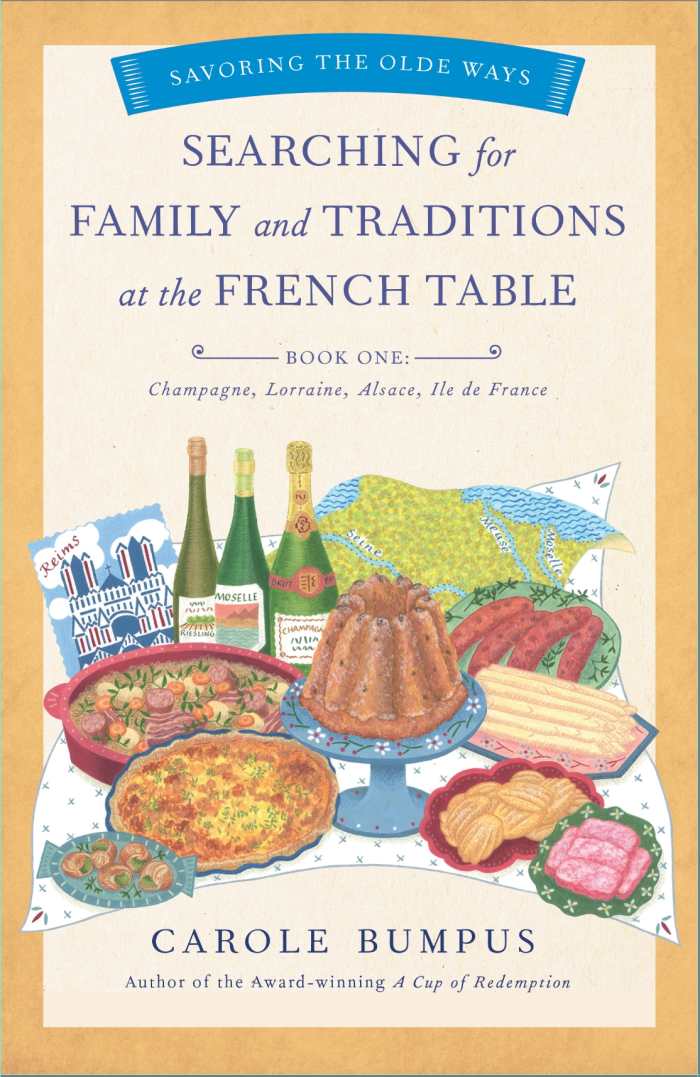
Carole Bumpus
She Writes Press
Softcover $16.95 (256pp)
978-1-63152-549-0
Buy: Local Bookstore (Bookshop), Amazon
In Searching for Family and Traditions at the French Table, Carole Bumpus trips through four regions of France. Part culinary memoir, part travelogue, the book shares intimate portraits of three generations of French families whose homes Bumpus was invited into. She imparts the families’ histories (often set against the backdrops of WWI and WWII), local traditions, foods, wines, and drinks, her text capturing a culture at once old and modern.
Beginning her tour in Paris––with her husband, Winston; her “French friend from California,” Josiane; and Jean-Claude, one of her many connections in France—Bumpus is told that, for the French, identity is all about history. Her host lays the foundation for her travels, lifting his glass and toasting: “Life is worth living, and if you can recognize the value of each pleasurable moment, you are truly a winner.” This sentiment is echoed throughout her tour: in toasts, traditional celebrations, and simple family gatherings.
Bumpus traveled east to Champagne, then to Alsace, Lorraine, and back to Paris. She ate, drank, and listened to reminiscences and poignant stories that contextualized the French people and their unique place in history. In both Alsace and Lorraine, she was confronted with the hardships left by the wars and their lingering effects on the local culture. The text reflects France’s contentious relationship with Germany, including how the two regions would flip between being German and then French again post-conflicts.
The book is peppered with descriptions of regional and family dishes, with recipes for dishes like Alsatian Baekofe, Crepes, Ravioli Faris au Cresson, and Tarte Flambe included as an added bonus. Searching for Family and Traditions at the French Table is a wonderful ride through four regions of France, generating great excitement for its follow-up.
ERIC PATTERSON (August 26, 2019)
Barbara Hodge
